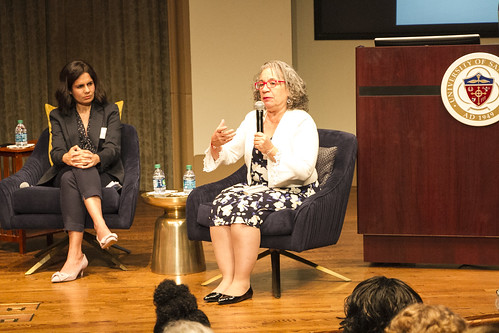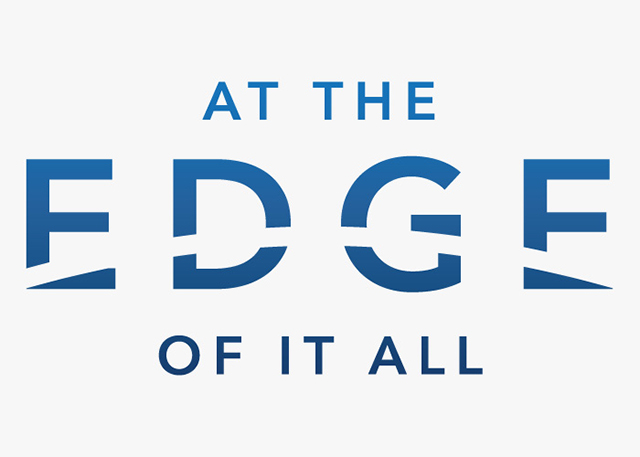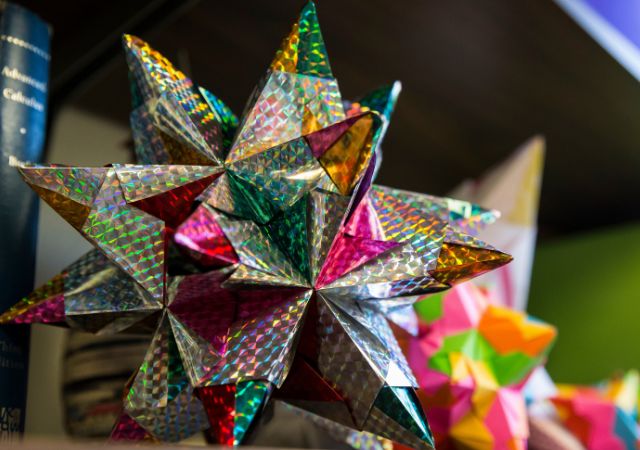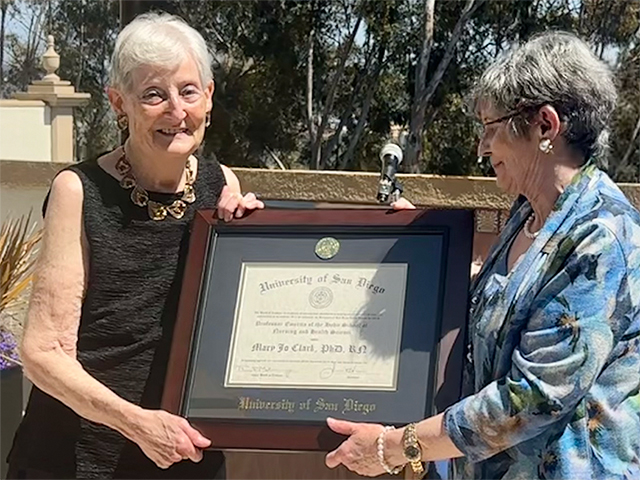Women PeaceMakers Know Importance of Peace-Seeking Roles
A capacity audience in the Joan B. Kroc Institute for Peace and Justice Theatre on Nov. 7 were introduced to Mariam Yazdani, Rosa Emilia Salamanca, Amira Abdulrahman Hussein Timan and Roxana Cristescu through four individual videos.
Images passed by on the theatre’s two large, wide screens on stage as Jenni Prisk’s voice eloquently spoke of the passion, determination, experience and impact that these four individuals possess. Indeed, the 2018 cohort of USD’s Women PeaceMakers — Yazdani from Pakistan, Colombia’s Salamanca, Timan from South Sudan and Cristescu from Eurasia — are powerful female role models and four determined, experienced voices for change.
Each has done extensive work in the area of peace negotiations, a vital role for women that is unfortunately not as common as it should be, but the PeaceMakers also the first ones to say that they can’t do it alone.
“We have to talk about it as we, because it is very hard to talk about me,” said Salamanca executive director of Corporación de Investigación y Acción Social y Económica (CIASE) in Colombia. “When the video was running, I was very shy. I just wanted to go under my seat. I need to honor the many women back home that have worked just as much as I have. There have been many women working — men also — at home to achieve peace. We’ve been working toward peace for a long time. It’s not that you can just work for a peace agreement; it is who you’re working with toward everything. The Colombian women’s movement is a very important movement. We’ve been working for peace for a long time. What is important is that when you want to change or move a system, you have to do it in a way that different points of that system can really be changed. You have to have people in different levels and places. It’s very difficult to think about a woman changing things when we need their women and their people changing a lot of behaviors and things that are useful for peace. That’s why I insist so much on the we.”
Together since late September on the USD campus, the PeaceMakers are truly operating as a “we.” They've been tasked with a project that 65 Women PeaceMaker alumna weighed in on earlier this year. Picked due to their roles in historic peace processes, the four are now working alongside Kroc IPJ’s international partners to devise ways to build more effective local and global collaborations to support women’s meaningful participation in peace negotiations.
While the project does not have an “overnight” solution, Jennifer Bradshaw, a Kroc IPJ program officer who works with the PeaceMaker cohort, moderated the panel event to get the women’s thoughts on the significance of being at a peace negotiating table, defining success and offering advice to young peacemakers.
Cristescu, head of Crisis Management Initiative Program in Eurasia, established quickly that she’s not a fan of a physical peace negotiating table — “it blocks the space between two people,” she says passionately — rather she’s more inclined to favor a more “human” experience, namely a one-on-one conversation for a truer commitment. Yazdani, Timan and Salamanca believe in the impact of a peace negotiating table. “It’s a starting point to help move things forward,” said Yazdani, a senior advisor for programs and partnerships at Viva Rio, a Brazilian NGO; “I see it as an opportunity, it is important to have it,” reasoned Timan; and Salamanca stated, “it is useful, it’s where people can talk, give their ideas, debate and it becomes an instrument for understanding things.”
Defining success has multiple answers, as well. Yazdani sees implementation of an agreement as her definition of success because it establishes a connection. “But,” she adds, “always have a plan with a vision for moving forward.” Salamanca’s peace work is built on a slow but steady kind of progress. “I look at each negotiation as taking a step toward another one.” And Cristescu focuses on true commitment. “A piece of paper is irrelevant if there’s not a strong commitment. There has to be a willingness to go through a transition period. Change is something most people dislike; thus, it requires sacrifice. It really translates to relationships and how they can work together.”
Cristescu and Yazdani endorse being active as a key attribute for young peacemakers because it gets them out of their comfort zone to participate and grow.
“Travel a lot and don’t stay in the same place,” Cristescu offered, “Meet friends who can support you, get a team around you to share the experience with you.”
Added Yazdani, “Yes to travel, but please also get to know the community where you live and give yourself a visceral understanding of the issues. It’s when you get to know the real issues and emotions that you’re able to relate to the emotions of others.”
Timan, a Humanitarian Affairs Officer with a UN/AU peacekeeping mission in Darfur, expresses hope for the emerging generation of peacebuilders. “Youth are energized, but they need the knowledge, skills, resources, experiences and to be connected with other people. But, yes, I do believe in them.”
Salamanca’s observation of the next wave of peacebuilders is for them to realize their impact. “A lot of youth are so good and they don’t understand that they are so good! They can be good for changing history. I believe so much in our young people.”
In addition to the PeaceMakers’ answers to questions posed by Bradshaw, some 50 questions on index cards were collected from the audience. Bradshaw said that all questions would be answered and utilized in future conversations with the PeaceMakers. Bradshaw also believes the audience's participation was an invitation for its own takeaway.
“Keep asking questions, keep having conversations, even if they’re hard,” said Bradshaw at the end of the event. “We’ve had a lot of hard conversations among the five of us. That’s what peacebuilding is and we need to lean into that. We can’t shy away from the hard questions, the hard conversations. Thank you for putting your thoughts into it and for writing it down.”
— Ryan T. Blystone
Contact:
USD News Center
news@sandiego.edu
(619) 260-4681




